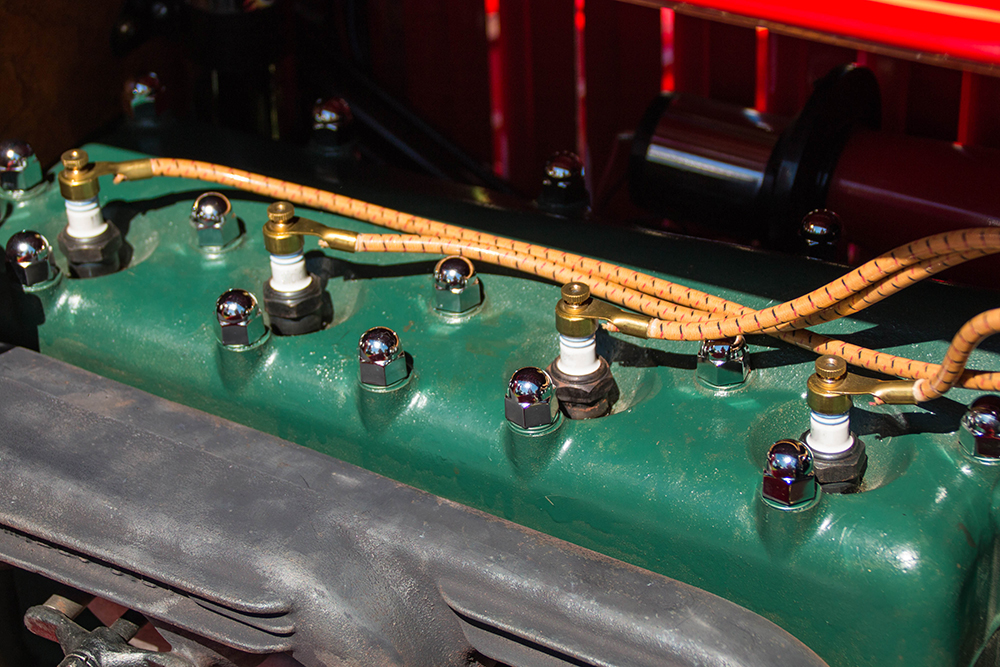In my tenure of 18 years with an aftermarket parts manufacturer and repairing vehicles 16 years prior to that, I saw a tremendous change happen within the automotive repair industry, in both technology and manufacturing abilities. With the consolidation of many parts, supply houses, and easy access to information through the web about car repair the dynamics of car repair has changed. The actual turning of the wrench is still the same but how you get there has changed drastically.
Growing up, my grandfather was a farmer where I helped in the summer. My father worked on and repaired oilfield engines, so between these two experiences is where I acquired my interest to repair vehicles. One of the first repair jobs that I was compensated for was putting a set of brushes in an alternator for a 1965 C50 Chevrolet with a straight six cylinder. At the age of 14, I started the repair thinking that it would be no issue. I removed the alternator and carefully disassembled it. Installed the brushes and reinstalled them. The repair took about three times longer than it should’ve, but I looked at the finished job with pride. I started the truck (and oh my goodness a horrid noise was coming from the alternator) and I immediately shut the engine off. I was concerned with what I had done wrong during the reassembly process. At the time, the only thing I knew to do was to ask someone with more experience what I could have possibly done wrong to cause such a noise.
So, I called an older family friend that worked for an electric coop repairing their fleet for 20 plus years. I explained what I had done during the repair and then tried to explain the noise. He began to chuckle and said that the brushes had to wear in and that noise would continue for only a short time until that happened. So, I went ahead and restarted the truck and sure enough after a very short time the noise disappeared. I thought ‘Wow, such knowledge and wisdom he had given me and for free’ I continued to touch base with him when I had a question that I could not answer.
Fast forward four years to a 1988 Chevrolet C60 with HEI ignition system. This truck was owned by a local farmer who asked if I could give it a simple tune up. He also explained that occasionally the truck would act like it was misfiring, we spoke about how plugs and wire could cause that. I had been working on a multitude of vehicles after school and on the weekends so thought this would be no big deal. I installed the new spark plugs, plug wires, fuel filter, distributor cap, and rotor. I also cleaned the throat of the carburetor as much as possible without disassembly.
It was time for a test drive, after about a mile and going up a slight incline, the engine started missing and had no power under acceleration. I reasoned that the vehicle had a problem with contamination and debris in the carburetor so I ordered a kit from the parts store. I completely disassembled the carburetor and installed the rebuild kit. Time for the second test drive and again it had the very same symptoms. I was out of ideas, so I went to the family friend and asked him if he had ever had that problem. He said he sure had, and I asked if their was a solution. He said he took out the HEI distributor and installed one with points. He also said in doing that he had to put a switch on the dash to power up the distributor so it would start. I asked him why he installed the point type distributor and not repair the HEI version, he said that he did not understand how the newer design worked so he just went back to the version he knew about.
I left him more confused than before, in my reasoning the new distributor solved the issue but created an unsatisfactory repair. So, I talked to my high school automotive shop teacher, he helped me understand what was causing the problem. I picked up the correct parts to fix the newer version distributor and installed them. Third test drive, there were no problems it performed great. I had a couple other trucks that had the same issue and they required the same fix. The fix was a lot easier than replacing the complete unit so I thought about the older technician’s answer of not understanding the newer version.
I finally determined that he had chosen to not learn about the new HEI distributor. The major components of the vehicle and engine had not changed for the first 20 to 30 years that he had repaired vehicles. He had let technology pass him by. He was a great technician in his day, but he had allowed that day to end. I often wonder when looking at today’s technology what he would think, and I can almost hear him now “a car that can drive itself, no way that will work”. I truly believe that the modern vehicle has advanced more in the last five years than the prior twenty. It is very easy for us as technicians to slip into the rut of “oh I will go to the next class” or “I don’t need any more training on that”. By doing this, the continuing advancement in automotive technology has and will pass you by.
“Anyone who stops learning is old, whether at twenty or eighty. Anyone who keeps learning stays young.”
Henry Ford
What is your reason?
I have been amazed at some of the different reasons I have heard from technicians of why they choose not to increase their knowledge. Some examples I have heard: my employer doesn’t pay for it, I don’t have time, the shops too busy, and the one I just don’t get is I can’t afford it right now the shop is slow. Let me address each of these separately.
Employer doesn’t pay for it
I have two thoughts on this excuse: first as a technician, you need to explain why training is as much of a value to you as the shop owner. By increasing your knowledge, you can turn the bay quicker which creates more bookable bay hours then creates more end of year dollars for the shop. Secondly, a responsible shop owner will see the bay turning quicker and should improve the technician compensation for that. This is depending on how the technician is compensated, it could be either an increase in base pay of the booked hour rate.
“Try not to become a man of success, but rather try to become a man of value.”
Albert Einstein
I don’t have time; the shop is too busy
Is there such a thing as a shop that is too busy? I say yes for many different reason which we will discuss in a later article, but I question, is the shop busy because of an overabundance of customers? Or could it be that the shop is operating inefficiently and could management training help this problem? Is it possible that you as a technician are like the older technician discussed earlier? Where you are not quite sure about the proper diagnosis and thus not turning the bay efficiently? You must look at each of these possible reasons and determine which one is the main cause. If it is an overabundance of customers, which is a good problem to have, then expansion may be needed. The other two possible reason for the shop being too busy could be reduced through education and training.
“The direction in which education starts a man will determine his future in life.”
Plato
I can’t afford it right now the shop is slow
I completely understand being short on the funds and spending them on groceries before a training class. I look at training as an investment in my abilities and not an expense. When you start looking at training in this aspect it changes the perspective.
So the shop is slow, is it possible you have limited yourself by not being trained to do a larger variety of repairs. By increasing your abilities through training on different vehicles and systems, you can work efficiently on more vehicle models. By becoming the local expert technician through specific training, you will have a steady flow of customers and because of your ability the other local shops will be sending you the vehicle they can’t repair.
“Education is the foundation upon which we build our future.”
Christine Gregoire
Education has Value
Several years ago, I was attending a training event in 1999 that was hosted by the Illinois Automotive College Instructors Association (IACIA) the course was on the Prius. I will always remember the instructor was a shop owner in the Chicago area. It was mentioned by a fellow attendee that he did not have many Priuses in his area. The instructor said that was not an issue and that by knowing how to repair the Prius and through advertising that in the gentlemen’s local area, he could expect to work on every Prius in his area because of the perception that he was the expert on the Prius. Therefore, I say training is an investment in your ability and it allows you to be the expert that your customers search for to correctly diagnosis and repair their vehicle. Don’t limit yourself by not increasing your abilities just because you have an excuse like everyone else.
“Any man who reads too much and uses his own brain too little falls into lazy habits of thinking.”
Albert Einstein
I encourage any comments or discussion you may have on the article just call 812-618-6101 or email me at [email protected]

